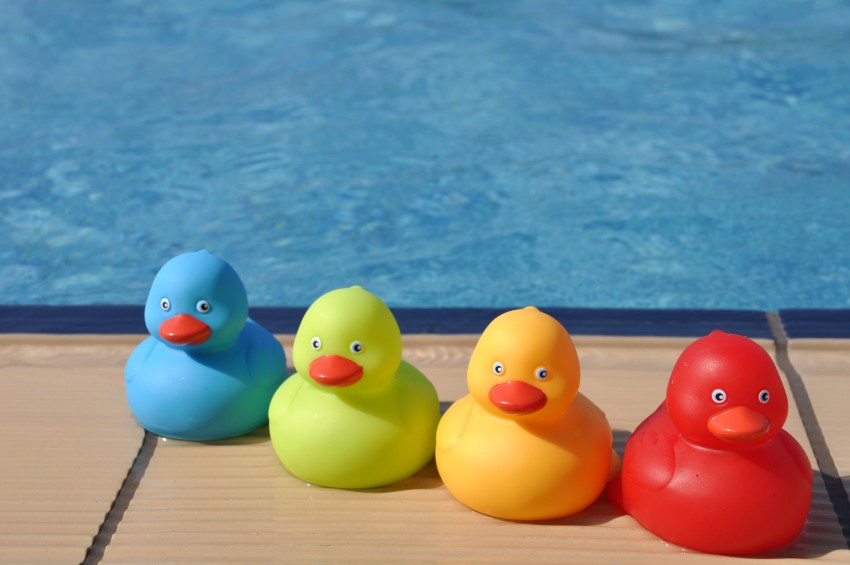Bringing your new baby home is one of the most exciting times in a parent’s life, but it can also be one of the most nerve-wracking. A newborn is so small and vulnerable, it’s not hard to believe that their immune systems aren’t quite developed enough to fight off illnesses. Keeping a newborn healthy is essential, but it certainly isn’t impossible. These 15 tips can help you protect your little one until her body is better able to fight off infections, maintaining her health and your emotional well-being in the process. 
- Be Firm With Friends and Relatives – It’s natural to want to show your newborn off to your nearest and dearest, but they can present a health risk for her. It’s important to keep in mind that not only is it okay to be firm in regard to your child’s health, it’s imperative. Don’t let a cousin with a case of the sniffles handle your new baby or allow loved ones to pick her up before washing their hands.
- Insist on Good Hand Washing Habits – One of the most effective ways of protecting your newborn’s health is to insist that everyone who touches her wash their hands thoroughly before doing so. Hands come into contact with so many germ-laden surfaces and objects throughout the day that it’s just not a good idea to skip a thorough scrubbing before cuddling.
- Keep the Kisses Away from Baby’s Face – Newborns are so cute and cuddly, they seem to be just begging for affection. No matter how much you want to cover her little face with kisses, it’s smart to keep in mind just how many germs are carried by your saliva.
- Don’t Skip the Vaccinations – There’s a battle raging amongst parents about the efficacy of vaccinations versus their perceived risks, but vaccinations do prevent many illnesses. Not only should your infant be immunized according to doctors’ recommendations, but so should older siblings and adults that will be caring for her.
- Remember that Breast is Best – Breastfeeding isn’t always an option, but it’s one that should be carefully considered if there’s any feasibility at all. In cases of adoption, low milk production or a mother’s need to be on medications that can be excreted through breast milk, formula is a perfectly adequate nutritional substance. It doesn’t, however, contain the antibodies that boost a baby’s new immune system.
- Avoid Crowded Places – Shopping malls, restaurants or even dinner parties can be crowded areas with high concentrations of people who are carrying communicable illnesses. In the interest of keeping your baby healthy, it’s wise to save his big debut for a time when his immune system is a bit more developed.
- Pay Special Attention to Older Siblings – Older siblings who attend preschool, daycare or elementary school are exposed to illness-spreading germs all day long, and they may have developed a resistance that allows them to still carry those germs without exhibiting symptoms of illness themselves. Make sure that your older children understand the importance of good hygiene, especially when it comes to spending time with a new baby.
- Keep Your Doctor’s Appointments – Time is a commodity that new parents seldom have an adequate supply of, but it’s important to remember that appointments with your pediatrician should be kept if at all possible.
- Hire an Experienced Caregiver – The rookie nanny you’re considering might be enthusiastic, but she may also lack the experience or training that will allow her to confidently care for a newborn without spreading illnesses. While it’s perfectly acceptable to hire a nanny with little to no practical work experience, you should make sure that she’s well-versed in the care of newborns and minimizing the spread of germs.
- Keep the Nursery Clean – When you’re sleep deprived and living on the quick snacks you can fit in during Baby’s naps, the idea of house cleaning probably isn’t an appealing one. Making sure that your newborn’s nursery is clean, however, is one of the best ways to prevent her from becoming sick.
- Practice Good Crib Safety Habits – Guarding your newborn’s health doesn’t just mean keeping her clear of illness-causing germs; it also requires you to be focused on her safety. Fluffy pillows, snuggly blankets and soft crib bumpers may seem like great tools for keeping her comfortable, but they can actually increase her risk of SIDS. The American Academy of Pediatrics recommends that infants’ cribs contain no pillows, plush toys or thick blankets.
- Minimize Play Dates – If your older children are accustomed to hosting play dates, it may be a smart move to consider putting them on hold for a few months or working with other parents in your playgroup to find alternate hosting solutions until your newborn is a bit older.
- Keep Pets Clear of the Nursery – Fido might be man’s best friend, but he doesn’t need to be licking your newborn’s face or spreading dander throughout her nursery. Making the baby’s room a pet-free zone for a while can reduce the number of germs and contaminants that she’s exposed to during the earliest days of her life.
- Sterilize Bottles and Nipples – It simply isn’t possible to keep every germ away from your newborn, but that doesn’t mean that you shouldn’t make an effort to protect her from them when you’re able. Sterilizing the bottles and nipples that she puts into her mouth during feeding time is one of the measures that you shouldn’t neglect.
- Take Care of Yourself! – An exhausted, overworked parent’s immune system might not be the most effective, so it’s important that you make every effort to take care of yourself, too. When you’re sick, it’s difficult to avoid passing those illnesses on to your baby. Guarding your own health and well-being isn’t self-indulgent; it’s a necessary step of preventing the spread of illnesses to your child.
source newborncare
